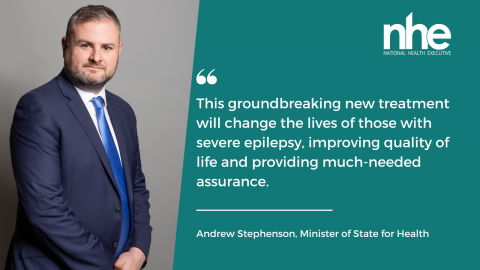People will be able to access a world-leading new laser beam therapy treatment next month in a move that NHS chiefs believe will be “game changing” for patients.
The treatment – known as Laser Interstitial Thermal Therapy – can help prevent epileptic seizures without the need for invasive surgery.
NHS England’s specialised services medical director, James Palmer, believes the new treatment option will be “game-changing for patients and will offer new hope on the NHS”.
Approximately 600,000 people live with epilepsy across the UK. The main treatment is taking medicines, but one in three with the condition cannot control their seizures with drugs alone and require neurosurgery to remove the part of the brain responsible for the seizures.
This is not suitable for everyone, however, as the source of the seizures cannot always be localised or is sometimes not accessible using current techniques. This is where experts think Laser Interstitial Thermal Therapy can help patients.

“Not only will this world-leading technology help replace invasive surgery for patients, which can have a huge impact take months to recover from, it will also allow clinicians to better target the parts of the brain causing the epilepsy, which dramatically reduces the risks and helps cut patients’ recovery time both in and out of hospital,” said James.
The treatment will be rolled out across England from June and available at London’s King’s College Hospital and Liverpool’s Walton Centre as specialist national hubs.
The treatment involves a fiber optic laser being inserted into the skull, which can heat and destroy the epilepsy-causing brain tissue. Clinicians will be able to navigate through the brain using an MRI scanner and avoid blood vessels and other critical structures.
Patients will be able to return home within 24-48 hours with minimal risk of infection or side effects, meaning they can go back to work in a week.
The Epilepsy Society’s medical director, Ley Sander, explained: “This non-invasive form of neurosurgery could be groundbreaking for some people with brain lesions whose seizures do not respond to conventional treatment options, including more invasive epilepsy surgery.
“It will make surgery safer and faster and dramatically cut the recovery period for individuals.”
It is estimated that the new treatment could benefit 50 patients in England each year.
Image credit: iStock



















